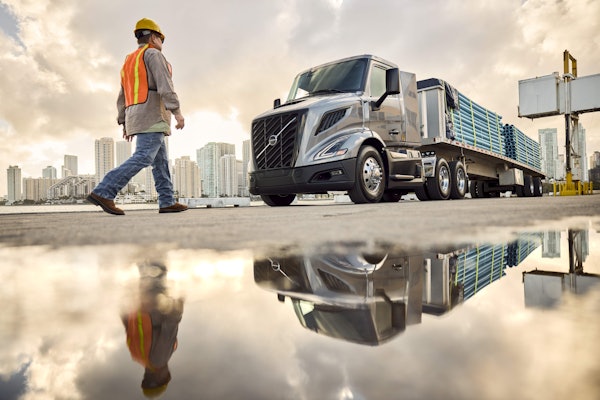Have you ever stopped to think about what goes into building a commercial truck?
Not just the basic assembly; I’m talking about the entire manufacturing process.
Think of all the time, money and effort necessary to create an assembly line that can quickly and effectively manufacture a transmission. Then think about the suspension, the emission system, the engine. Think about all of the unbelievably detailed and intricate onboard computers we see in new trucks.
Components that once took days to assemble are now built in minutes, shoving off an assembly line and into a wrapped package faster than you can tie your shoes.
I’ve seen it, and it’s truly incredible.
This is the speed at which global economies move, and make no mistake about it — the trucking industry is now operating on a global scale.
I think that’s a good thing.
If you don’t, consider this: Imagine your everyday life without globalization?
You wake up in the morning and make a pot of coffee. Where did those beans come from? Probably not Nebraska. They were shipped in from somewhere else in the world.
Your toast could come from anywhere, and the butter you spread on it might be from California or Wisconsin, but your Ikea butter knife sure isn’t. Speaking of, that china you’re using; it might not actually be from China, but there’s a decent chance it was produced in Asia or Europe.
And that’s just breakfast.
Your toothbrush could be from anywhere — mine is China, I just checked. The Norelco electric razor you love so much was made by the Amsterdam-based Phillips conglomerate. Then there’s your favorite watch, the one you got for your last birthday. It’s a Swiss timepiece.
You’re not even out your front door yet and you’ve traveled the world.
This is globalization.
Could all of those products be produced here? Sure. Just because the Swiss make great watches and Colombia produces great coffee doesn’t mean we couldn’t produce them here.
They just might not be as good.
Every country on Earth can’t produce everything it needs on its own at the quality levels the global economy provides. Some countries don’t have the natural resources, others don’t have the labor. Some don’t have either. And I didn’t even mention cost.
Production is expensive.
The Economist says economies of scale refer to the idea that there are factors in production that will cause the “average cost of producing something to fall as volume of its output increases.”
Or, as production goes up, cost per unit goes down.
This is what drives manufacturing in the 21st century. It’s the reason trucks you’re servicing components manufactured in all corners of the world, and the reason why the American company you purchase that part from produces it overseas.
Why sell exclusively to the North American market when you can sell to the world?
This is something truck manufacturers and suppliers discovered many years ago, and since have been working tirelessly to expand.
But this growth hasn’t been met with universal adoration. Some unwelcome results of globalization in the North American market include product standardization and unnecessary technological advancements.
While those are valid concerns, I still think globalization is a good thing.
Complete truck standardization here seems unrealistic to me. Unlike Europe, North American fleets have legitimate buying power when spec’ing new vehicles and OEMs know that. Losing one large customer to standardization might not hurt much but losing 25 or 50 would.
And technological advancements — are those really bad?
It seems to me diagnosing a problem in 30 seconds on a computer is a better use of a technician’s time than 30 minutes under a truck.
It’s all about evolving. You don’t still use a rotary phone.
The trucks on our roads today run smoother and safer than ever before. We have global engineering influences to thank for that.
I think that makes it worth it.









